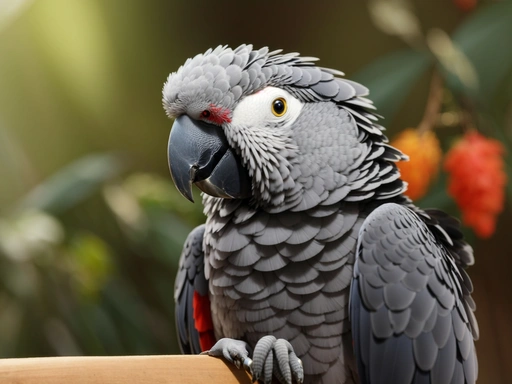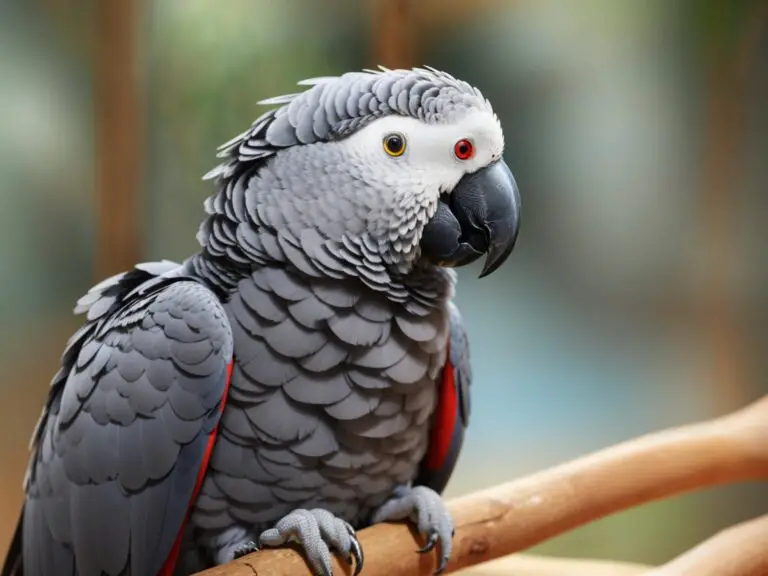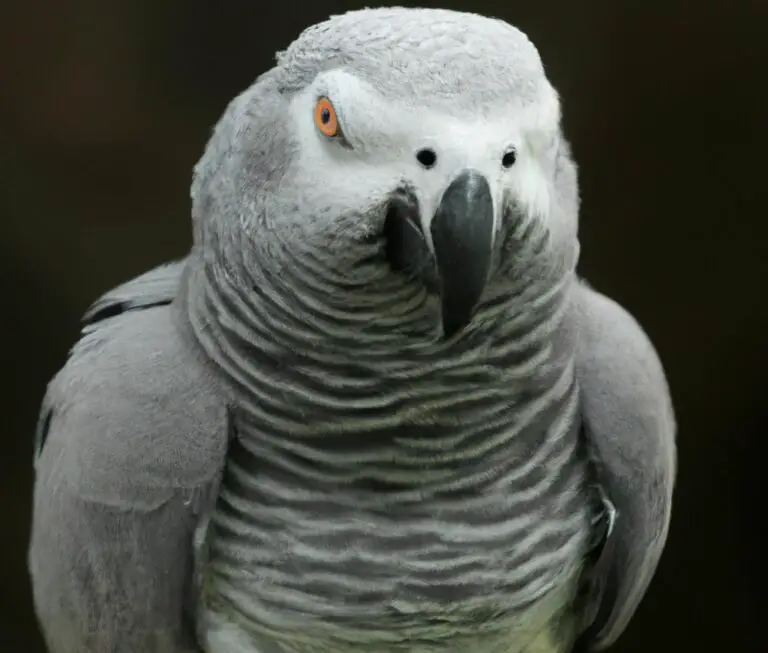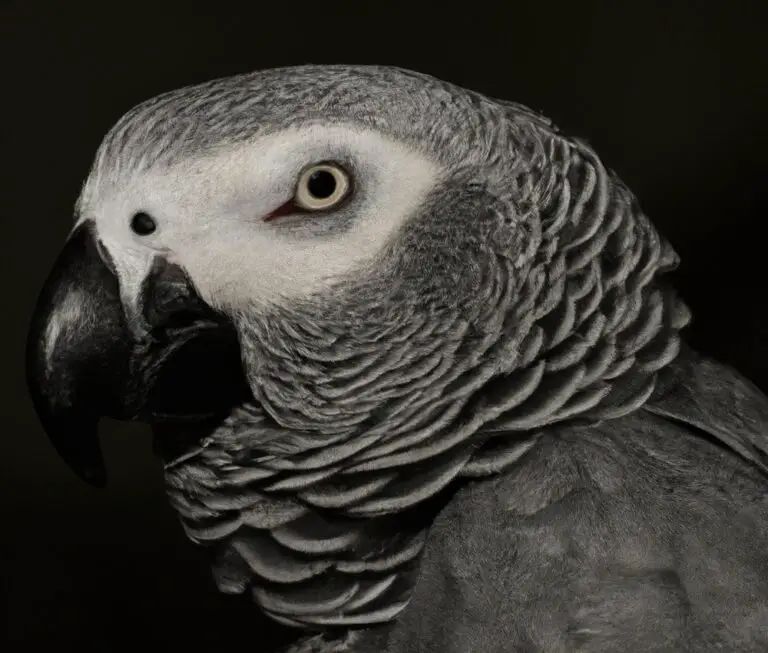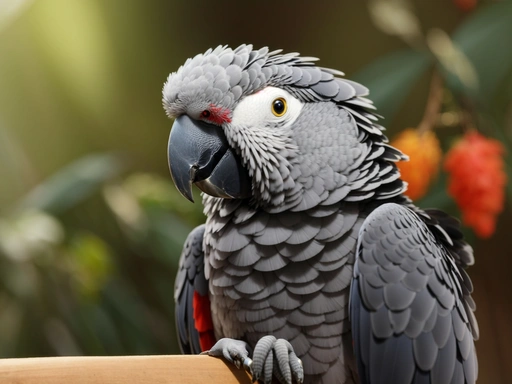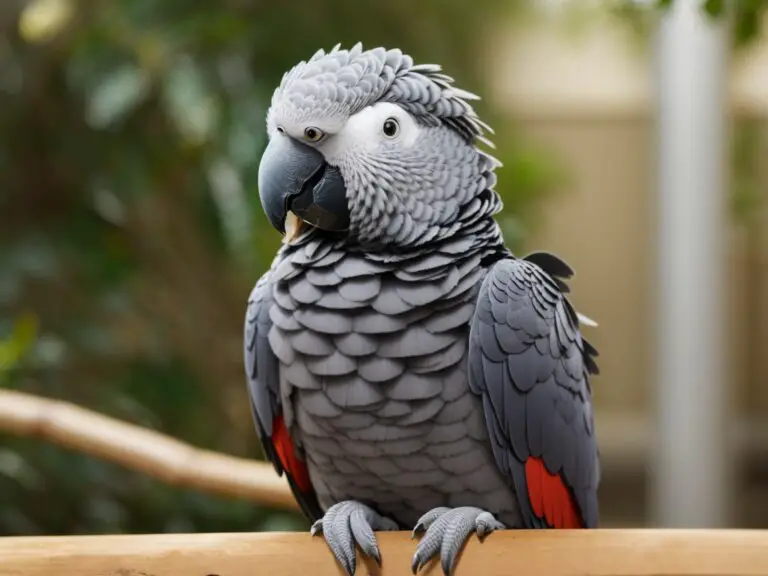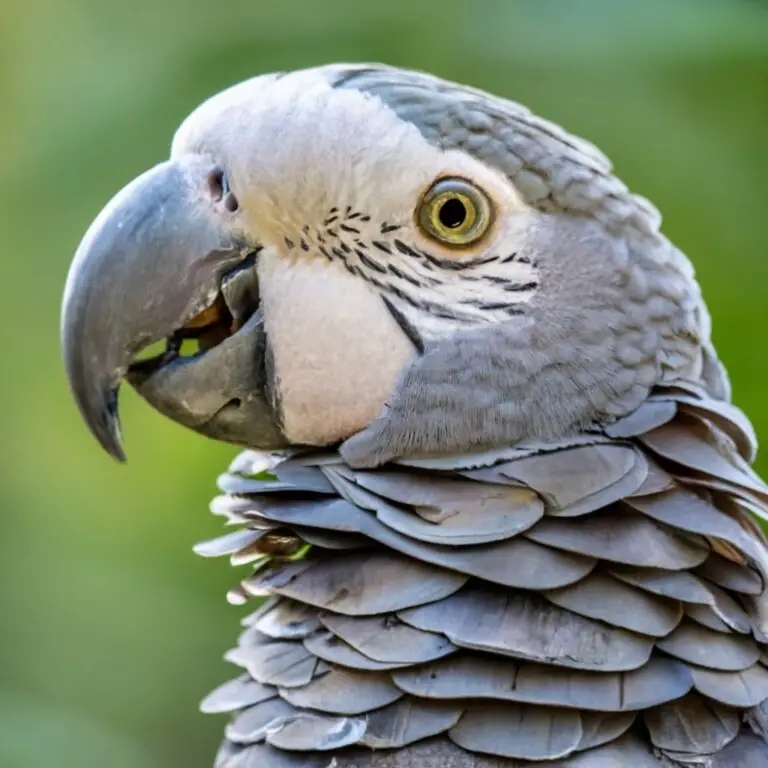How Do African Grey Parrots Sleep?
Key Takeaways:
- African grey parrots primarily sleep at night like humans, with an average sleep duration of 10-12 hours per day.
- They usually prefer to sleep perched on a branch or a comfortable surface, rather than in a nest or enclosed space.
- African grey parrots have the ability to sleep with one eye closed while the other remains open, allowing them to remain vigilant to potential threats even while resting.
- It is essential to provide a quiet and dimly lit environment for them to ensure they get adequate rest during their sleep cycles.
Have you ever wondered how African grey parrots sleep?
These clever and charismatic birds have some fascinating sleep patterns that are worth exploring.
In this article, we will dive into the daily sleep duration of African grey parrots, their preferred sleep positions and habitat, as well as their unique sleep cycles and REM sleep.
We will also discuss how to create an ideal sleeping environment for these birds and address common sleep issues they may face.
Additionally, you will find tips on promoting healthy sleep in African grey parrots and answers to frequently asked questions about their sleep habits.
Get ready to unravel the mysteries of these amazing avian sleepers!
| Sleeping habits | African Grey parrots |
| Sleep duration | About 10-12 hours |
| Sleep location | In the wild: tree cavities or dense foliage; In captivity: enclosed area, such as a cage or nest box |
| Sleep position | Usually perched with feet wrapped around a branch, holding onto a support with their beak |
| Sleeping schedule | Nocturnal sleepers; Awake and active during the day |
| Sleeping behaviors | May fluff up their feathers or cover their eyes with their wings when sleeping |
| Special sleep requirements | Need a quiet, dark, and comfortable environment to sleep peacefully |
Understanding the Sleep Patterns of African Grey Parrots
African Grey Parrots have unique sleep patterns that are influenced by their natural habitat and behaviors.
Let’s delve into their daily sleep duration, preferred sleep position, and the cycles of sleep they experience.
Daily Sleep Duration
African Grey Parrots typically need around 10 to 12 hours of sleep each night. It’s important to provide them with a quiet and dark sleeping environment to help them get the rest they need.
Avoid disturbing their sleep, and try to establish a consistent bedtime routine to promote healthy sleep patterns.
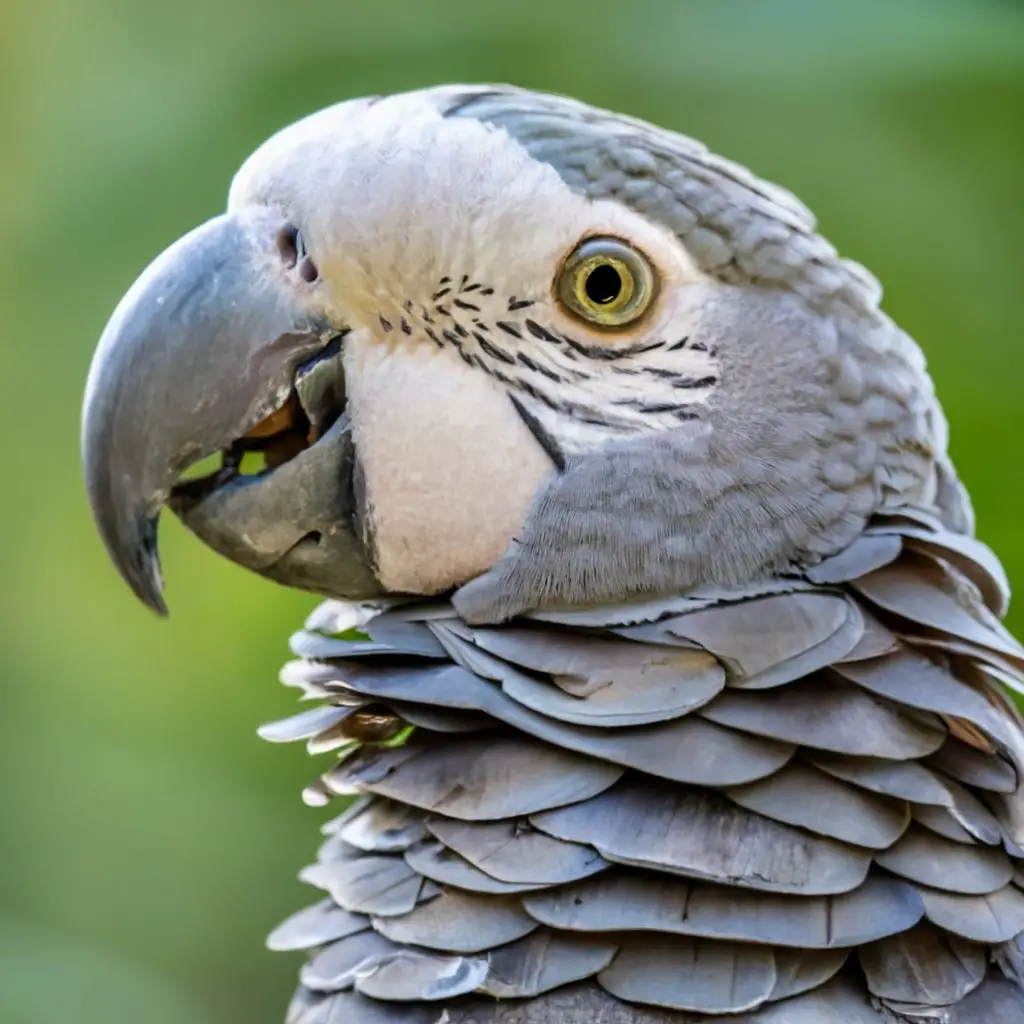
Sleep Position and Habitat
African grey parrots sleep in an upright position, usually standing on one leg with their heads tucked under their wings.
They do this to feel secure and protect themselves from predators in the wild.
In terms of habitat, these parrots are native to the rainforests of West and Central Africa, where they live in tall trees and make nests in tree cavities.
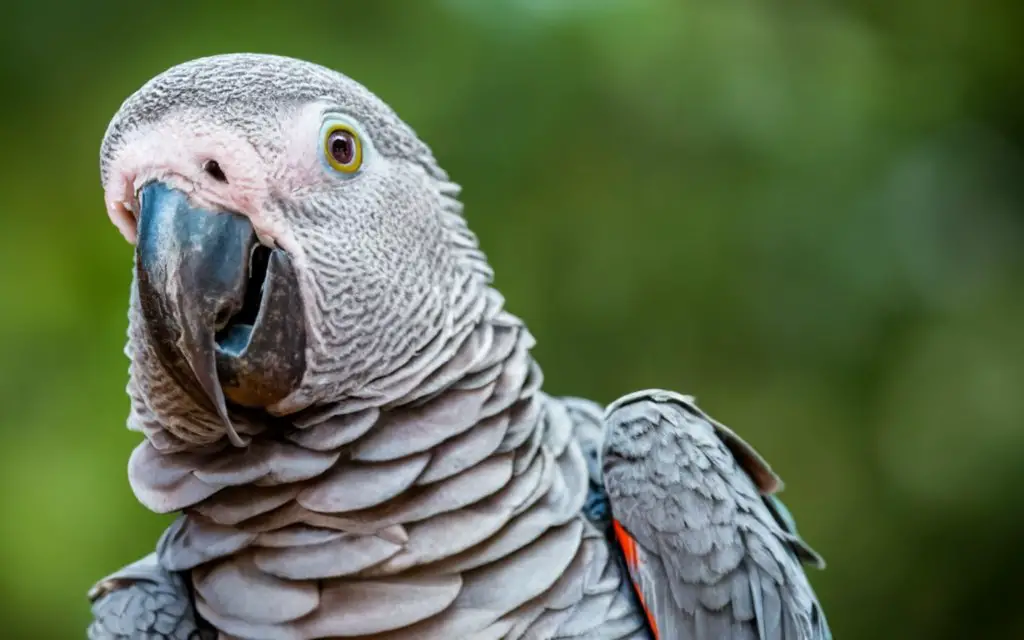
Sleep Cycles and REM Sleep
Sleep cycles in African Grey Parrots are similar to those of humans. They go through different stages of sleep, including REM (rapid eye movement) sleep.
During REM sleep, their eyes move rapidly, and they may twitch or vocalize.
This stage is important for their overall rest and brain development. African Grey Parrots also experience non-REM sleep, which is a deeper stage of sleep where their muscles relax.
Providing a conducive sleeping environment is essential for ensuring healthy sleep cycles and REM sleep in African Grey Parrots.
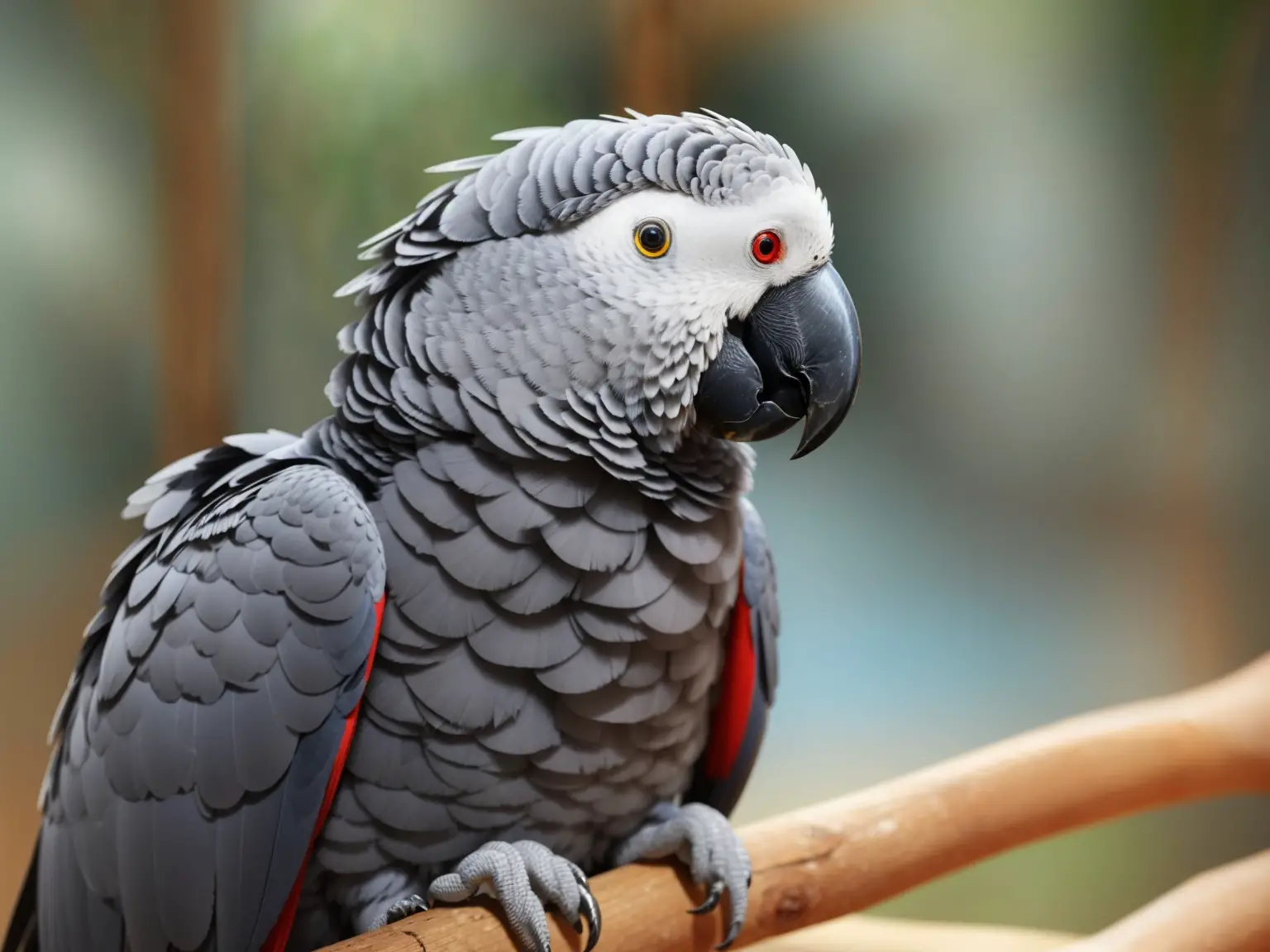
Creating an Ideal Sleeping Environment for African Grey Parrots
To create an ideal sleeping environment for your African Grey Parrot, focus on providing a quiet and dark space, maintaining optimal temperature and humidity, and ensuring comfortable perches and nesting material.
Providing a Quiet and Dark Space
African Grey Parrots need a quiet and dark space to sleep well. Keep your parrot’s sleep area away from loud noises and bright lights.
Cover their cage with a cloth or use blackout curtains to create a dark, cozy environment.
Remove any distractions that may disturb their sleep, such as TVs or radios.
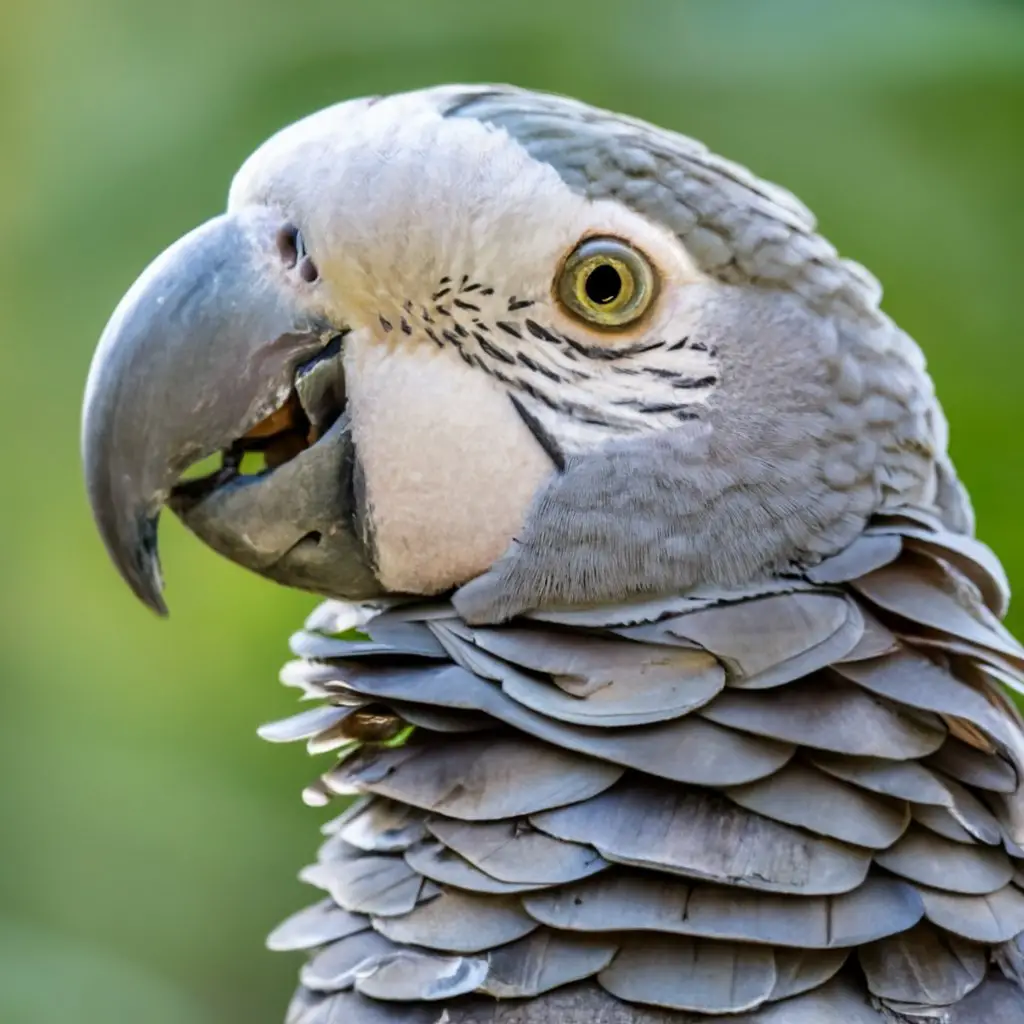
Maintaining Optimal Temperature and Humidity
To maintain optimal temperature and humidity for African Grey Parrots, it’s important to keep their environment comfortable.
Aim for a temperature range of 68-78°F (20-25°C) and a humidity level of 40-60%.
You can achieve this by using a thermostat-controlled heating system, a hygrometer to monitor humidity, and avoiding areas with drafts or direct sunlight.
Providing appropriate ventilation is also key to preventing excessive moisture buildup.
Ensuring Comfortable Perches and Nesting Material
To ensure comfortable perches, provide a variety of sizes and textures for your African Grey Parrot to choose from. Opt for natural wood perches that mimic their wild environment.
When it comes to nesting materials, provide soft materials like shredded paper or strips of fabric.
Avoid using materials that can be harmful or irritating to your pet.
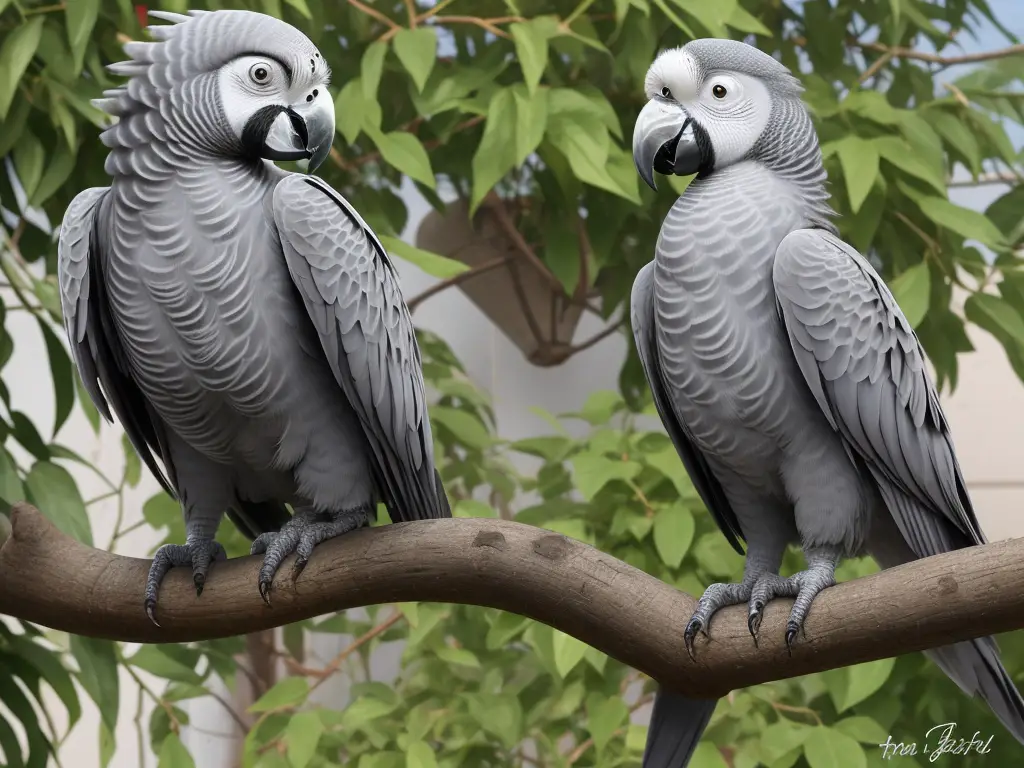
Common Sleep Issues in African Grey Parrots
African Grey Parrots can experience insomnia and restlessness during their sleep.
They may also have night frights and night terrors, as well as engage in feather plucking and other self-destructive behaviors.
Insomnia and Restlessness
Insomnia and restlessness can be common sleep issues in African Grey Parrots. These can be caused by factors such as stress, inadequate sleep environment, or health issues.
To address insomnia and restlessness, it’s important to create a calm, comfortable sleep environment, establish a bedtime routine, and provide mental and physical stimulation during the day.
Seeking guidance from a veterinarian is also crucial to rule out any underlying health problems.
Night Frights and Night Terrors
Night frights and night terrors are common sleep issues in African Grey Parrots. They are characterized by sudden episodes of fear or panic during the night, causing the parrot to become agitated or even fly around the cage in distress.
These episodes can be triggered by external stimuli, such as loud noises or sudden movements, or they may occur for no apparent reason.
To help reduce night frights and night terrors, it’s important to ensure a quiet and dark sleeping environment, offer mental and physical stimulation during the day, and encourage natural sleep behaviors.
Feather Plucking and Other Self-Destructive Behaviors
Feather plucking and other self-destructive behaviors are common sleep issues in African Grey Parrots. This can be caused by stress, boredom, or health problems.
Providing mental and physical stimulation, creating a calm sleep environment, and seeking veterinary care are important steps to address these behaviors.
Tips for Promoting Healthy Sleep in African Grey Parrots
Establishing a Routine and Consistent Bedtime.
Establishing a Routine and Consistent Bedtime
Establishing a routine and consistent bedtime is important for promoting healthy sleep in African Grey Parrots.
- Maintain a consistent sleep schedule, setting a specific time for bedtime each night.
- Create a calm, quiet environment to help them relax and unwind.
- Avoid stimulating activities or loud noises close to bedtime.
- Provide a comfortable sleeping area with a cozy perch and suitable nesting material.
- Ensure they have ample mental and physical stimulation during the day to promote tiredness at night.
Offering Mental and Physical Stimulation during the Day
To offer mental and physical stimulation to African Grey Parrots during the day, you can engage them in activities that keep them mentally stimulated, such as puzzle toys, interactive games, and teaching them new tricks. Additionally, provide physical stimulation through supervised playtime, access to perches for climbing, and flying exercises.
Variety is key, so mix up the activities to keep them engaged and entertained.
Encouraging Natural Sleep Behaviors
To encourage natural sleep behaviors in African Grey Parrots, it’s important to create a quiet and dark sleeping space. Ensure the ideal temperature and humidity levels, and provide comfortable perches and nesting material.
Establish a consistent bedtime routine and offer mental and physical stimulation during the day.
Encouraging a natural sleep environment will help your parrot get the rest it needs.
Frequently Asked Questions about African Grey Parrot Sleep
How much sleep do African Grey Parrots need?
African Grey Parrots need about 10-12 hours of sleep each night to stay healthy and well-rested.
In addition to the nighttime sleep, they may also take short naps during the day, totaling another 1-2 hours.
Providing them with a quiet, dark, and comfortable sleeping environment will help them get the rest they need.
Can African Grey Parrots sleep with lights on?
African Grey Parrots prefer sleeping in a quiet and dark environment.
Having lights on can disrupt their sleep patterns and make it difficult for them to rest properly.
It’s best to provide them with a calm and dimly lit sleeping space to ensure they get the rest they need.
Do African Grey Parrots dream?
Yes, African Grey Parrots do dream! Just like humans and other animals, these intelligent birds experience REM sleep, which is associated with dreaming.
During this stage of sleep, their eyes may twitch, and they may make small movements or vocalize.
It’s fascinating to think about what they might be dreaming about!
Final Verdict
Understanding the sleep patterns of African Grey Parrots is crucial for their overall health and well-being. These parrots require an adequate amount of sleep, usually around 10-12 hours per night, and prefer a quiet and dark sleeping environment.
Creating the ideal sleeping environment, addressing common sleep issues, and promoting healthy sleep practices can help ensure that African Grey Parrots get the quality sleep they need.
By incorporating these tips, parrot owners can support their feathered friends in achieving restful and rejuvenating sleep. Remember, a good night’s sleep is essential for the happiness and vitality of our African Grey Parrot companions.

